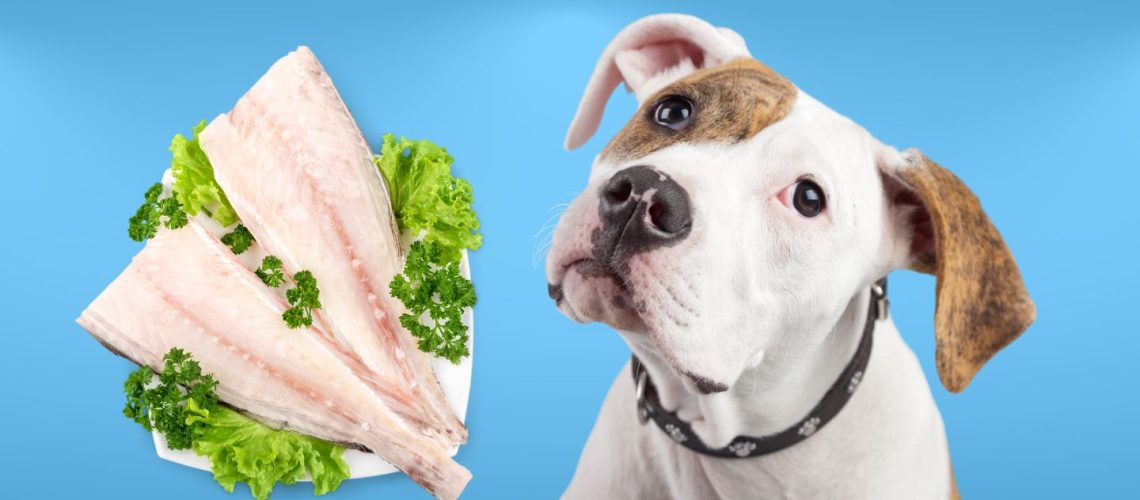Yes, dogs can eat cod as long as it is cooked and served in moderation. Cod is a lean, white fish that is a good source of protein and omega-3 fatty acids, which can help keep your dog's coat healthy and shiny. However, like any other type of fish, cod can contain bones and may cause digestive issues if fed in large amounts. It is important to only feed your dog small portions of cod as part of a balanced diet.
Nutritional Content of Cod
Cod is a nutritious fish that can provide several health benefits to your dog when consumed in moderation.
Protein
Cod is a high-quality source of protein, which is essential for the growth and development of your dog's muscles and tissues.
Omega-3 Fatty Acids
Omega-3 fatty acids are crucial for maintaining a shiny and healthy coat as well as supporting brain function and heart health in dogs.
Vitamins and Minerals
Cod is a good source of essential vitamins and minerals such as B-vitamins, potassium, and phosphorus, which are important for your dog's overall health.
Low Fat and Low Calorie
Cod is low in fat and calories, making it a good choice for dogs who need to maintain a healthy weight.
Ideal Ways to Cook Cod for Dogs
When preparing cod for your dog, it is essential to keep it simple and serve it without any harmful additives or seasonings.
Baking
Baking is one of the best ways to cook cod for your dog. It allows the fish to retain its natural flavors and nutrients without the need for any oils or fats.
Boiling
Boiling is another healthy cooking method for cod, as it preserves the nutrients and eliminates the need for any additional fats.
Steaming
Steaming is a gentle cooking method that enables the cod to maintain its nutrients and makes it easy for your dog to digest.
Avoid Frying and Seasonings
Avoid frying cod, as it adds unnecessary fats and can create harmful substances during the frying process. Also, refrain from using salt and seasonings that may be harmful to your dog's health.
Signs of Allergic Reactions or Intolerance to Cod in Dogs
While some dogs can enjoy cod without any issues, others may have an adverse reaction to this fish. Be aware of the following signs that may indicate an allergy or intolerance:
Vomiting
If your dog vomits after eating cod, it may be a sign of an allergy or intolerance.
Diarrhea
Diarrhea can also indicate that your dog is having trouble digesting cod or may be allergic to it.
Itchy Skin
An allergic reaction to cod may cause itchy skin, rashes, or hives in your dog.
Swelling
Facial swelling can be another sign of an allergic reaction to cod.
Alternatives to Cod for Dogs
If your dog cannot tolerate cod or you are looking for other fish options, consider these alternatives:
Salmon
Salmon is a popular and nutritious option, boasting high levels of omega-3 fatty acids and protein.
Sardines
Sardines are another healthy fish option, rich in omega-3 fatty acids and vitamins.
Whitefish
Whitefish, such as tilapia or haddock, can be a low-calorie and protein-rich option for your dog.
Tuna (in moderation)
Tuna can be a good source of omega-3 fatty acids but should be fed in moderation due to its potential high mercury content.
Precautions When Feeding Seafood to Dogs
When giving seafood to your dog, keep these precautions in mind:
Mercury Levels
Be aware of the mercury levels in fish and choose options with lower mercury content, like cod and salmon.
Sourcing and Sustainability
Opt for sustainably sourced fish to ensure the best quality and environmental responsibility.
Potential Contaminants
Be cautious of potential contaminants, such as parasites and chemicals, when feeding fish to your dog. Always choose fresh, high-quality fish and cook it thoroughly.
Conclusion
Feeding cod to dogs can be a healthy and beneficial addition to their diet when done safely and in moderation. By following guidelines on cooking and serving cod, as well as being aware of any risks and signs of intolerance, dog owners can provide their pets with a nutritious and tasty treat.











